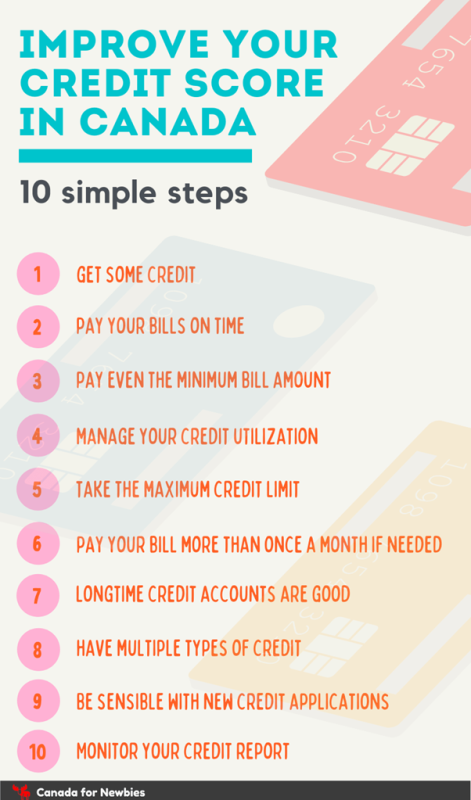
Your credit score is a three-digit number that is very important for various aspects of your life. It may affect your ability to take out loans, credit cards, and mortgage, rent an apartment, and even find a suitable job.
This number is really powerful and you should aim to protect it. If you have a less-than-stellar credit rating, you may want to learn how to improve it. Keep on reading to find out some useful tips on how to build your credit fast.
Get a Low-Interest Credit Card
If you already have multiple credit cards, it won’t be a good idea. If you are a responsible credit card user and always repay the debt on time and in full, this is a great option for building your credit score.
You may have doubts about what credit card to choose for this purpose. If your rating is too low, the choices of credit card options may also be limited.
Avoid using various loans like online loans Alberta that will quickly give you money, but also reward you with debt. Try not to carry high-interest credit card debt. You may want to find a low-interest credit card to avoid high rates.
While traditional cards charge about 19%, a low-interest option is more suitable. It will make your outstanding debt easier to pay down and more manageable.
Take out a Personal Loan
Another useful way to build a good credit score is to take out a personal loan. Make sure you are responsible and repay the debt in full according to your repayment schedule. Otherwise, you will face penalties and your credit score may be ruined. It can be a secure personal loan as well.
A secured option comes at lower interest rates and fewer charges. An unsecured personal loan presents fewer risks to the borrower but can be more expensive. Once you start making regular payments, your rating will improve.
Increase the Length of Your Credit History
It is beneficial for your score to have a credit account that has been open and is in use for a long time. If your credit accounts are new, your credit rating might be lower. In case you transfer an older account to a new one, the new account will be considered new credit.
Certain credit card offers may come with low introductory interest for balance transfers. What does it mean? It means you may transfer your present balance to this new card.
The new card will be a new type of credit. Financial experts advise Canadian consumers to keep their older accounts open even if they aren’t using them at the moment. You may just utilize it once in a while so that it remains active.
Take into account that there shouldn’t be any fees if the account is open and not in use. Check the credit agreement if there is a fee as it may accumulate.
You can also checkout Credit Card deals with having the latest Microwave Black Friday discounts.
Tweak Your Credit Utilization
The percentage of your available credit in use is another thing that may affect your current credit score. Make certain you don’t have too much debt. Never max out your credit cards as it may ruin your rating.
In case your credit utilization is already high, you should consider getting a limit boost. Sometimes, this method can’t work so you should check it out. If it isn’t possible in your situation, there is still another solution.
You may become an authorized user on someone else’s account. Who can help you with that? Your friend, relative, or family member can add your name to their credit card account.
As a result, the amount of credit available to you will increase. This process will lower your utilization ratio. Experts advise having this ratio of 30% or lower. Make certain you don’t spend against this credit though!
Check Your Payment History
Your payment history is extremely important for your credit score. If you are willing to boost your payment history, you should make at least the minimum payment each month, always make on-time loan payments, contact the creditor straight away if you think you have trouble paying a bill, and never skip a payment due.
Limit The Number of Credit Applications or Credit Checks
It’s completely normal that you will apply for credit once in a while. Each time the crediting institution asks a credit bureau for your credit report, this is recorded as an inquiry. Such inquiries are also called credit checks or credit pulls. You shouldn’t have too many credits pulled in your report.
According to the information from the Government of Canada, lenders may suggest you are trying to live beyond your means or urgently seeking credit.
The path to improving credit score
Your present credit score can be plagued by old credit issues. That’s alright since you can always alter your credit habits. Here are some wise credit habits that often won’t damage your credit and could even improve it:
Pay your bills promptly.
Make the minimal payment even if you are unable to pay the whole amount.
Watch the balances on your credit card.
Make sure you’re not utilizing an excessive amount of your credit.
Avoid opening new credit card accounts without thinking.
Make cautious not to apply for new cards too frequently if you do. Creditors may view this conduct as careless.
When you relocate, let banks and credit card firms know.
You don’t want to discover that your payments are underpaid as a result of the mail being delivered to the incorrect address.
Online account checking Waiting for the invoices to arrive in the mail is not necessary.
Make sure that payments are being received and that cards are being kept up to date.
Repay past-due invoices.
Missed payments will still appear on your record even after you pay off your past-due obligations. However, it could improve your reputation with lenders. For instance, if you are doing small business and you use your credit card, make sure your past-due invoices are paid off.
Search for errors.
On occasion, partial or incorrect information is provided to the credit reporting bureaus. You can easily challenge these errors with the credit reporting organizations. Also keep in mind that credit bureaus are only the messengers; it is your responsibility to notify them if one of your creditors provides false information.

If you are willing to control the number of credit checks in your credit report, you should:
- Get several quotes from different crediting companies within a two-week period when shopping around for a mortgage or a car loan. Your inquiries will be combined in a single credit pull.
- Limit the number of times you apply for credit
- Apply for credit only if you really need extra cash straight away.
There are two types of credit checks – hard and soft ones. Hard credit checks are extremely harmful to your credit rating so you need to try to avoid them. Examples of hard inquiries include rental applications, requests for a new credit card, and some employment applications.
Soft credit inquiries don’t harm your credit as they are only visible to you in your credit report. Examples of soft pulls include requesting your own credit report and businesses asking for your credit report to update their records about an existing account you have with them.
The Bottom Line
In conclusion, your credit score isn’t just a three-digit number in your credit report. This figure carries a lot of value and should be taken care of. This is one of the most significant factors when it comes to making a big-ticket purchase, buying an auto, getting a mortgage, or taking out a personal loan.
More than that, this number also plays an important role when you decide to land a decent job and even rent an apartment.
Every creditor will review your credit score to check your creditworthiness. Whether you are repairing your rating or building it from scratch, taking these steps and following our tips will help you avoid mistakes with your credit and have a better financial situation in the future.
